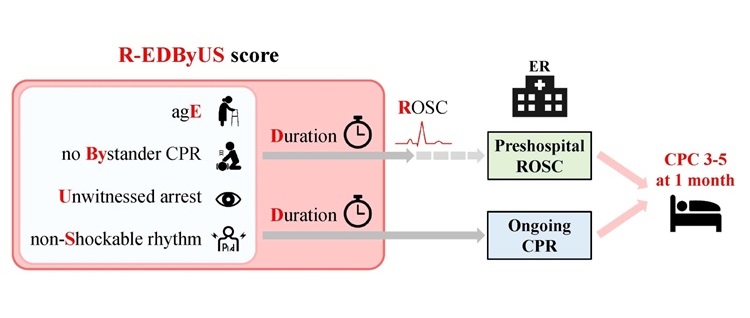Scoring Model Accurately Predicts Neurological Outcomes of Patients with Out-Of-Hospital Cardiac Arrest
Posted on 06 Aug 2024
Cardiac arrest can be fatal within minutes, making rapid response crucial for survival. Out-of-hospital cardiac arrest (OHCA) is a significant public health issue worldwide. Despite advancements in resuscitation techniques, survival rates are still low and often accompanied by poor neurological outcomes. Swift and accurate predictions of neurological outcomes are essential in cases of OHCA. Efficient predictive models can not only save lives but also alleviate suffering and reduce the costs associated with unnecessary resuscitation efforts. Existing prognostic models, which rely on complex calculations and blood tests, are not practical for immediate use after patient transport. To bridge this gap, a new scoring model has been developed that uses only data available from prehospital resuscitations to accurately predict the neurological outcomes of OHCA patients. This model enables healthcare providers to make rapid and informed decisions upon a patient’s arrival at the hospital, enhancing patient care and optimizing resource use.
The new scoring model, named the R-EDByUS score, was developed by researchers from Osaka Metropolitan University (Osaka, Japan). It utilizes readily available prehospital data to predict unfavorable neurological outcomes, such as severe disability, vegetative state, or death. The research team analyzed data from the All-Japan Utstein Registry, covering prehospital resuscitation and neurological recovery one month post-arrest for 942,891 adults with presumed cardiac-origin OHCA, gathered between 2005 and 2019. The model is based on five key variables, which are reflected in its name: age, duration to return of spontaneous circulation (ROSC) or time to hospital arrival, absence of bystander CPR, whether the arrest was witnessed, and the initial heart rhythm (shockable versus non-shockable).

Patients were categorized into two groups depending on whether they achieved ROSC before hospital arrival or were still receiving CPR upon arrival. The researchers used these categories to develop both detailed regression-based and simplified models to calculate R-EDByUS scores for each group. Their study, published in the journal Resuscitation, showed that the R-EDByUS scores effectively predicted neurological outcomes with high precision, achieving C-statistics values of about 0.85 for both groups. C-statistics values range from 0.5 (no predictive ability) to 1.0 (perfect prediction), with higher values indicating better model performance. This scoring model promises to be a valuable tool for healthcare providers, assisting in the timely evaluation and treatment of patients undergoing resuscitation.
“The R-EDByUS score enables high-precision prognosis prediction immediately upon hospital arrival, and its application via smartphone or tablet makes it suitable for everyday clinical use,” said Takenobu Shimada, a medical lecturer at Osaka Metropolitan University’s Graduate School of Medicine and lead author of the study. “In emergency care for OHCA, invasive procedures, such as mechanical circulatory support, can be life-saving but are also highly burdensome. Our predictive model helps identify patients who are likely to benefit from intensive care while reducing unnecessary burdens on those with poor predicted outcomes.”
Related Links:
Osaka Metropolitan University














